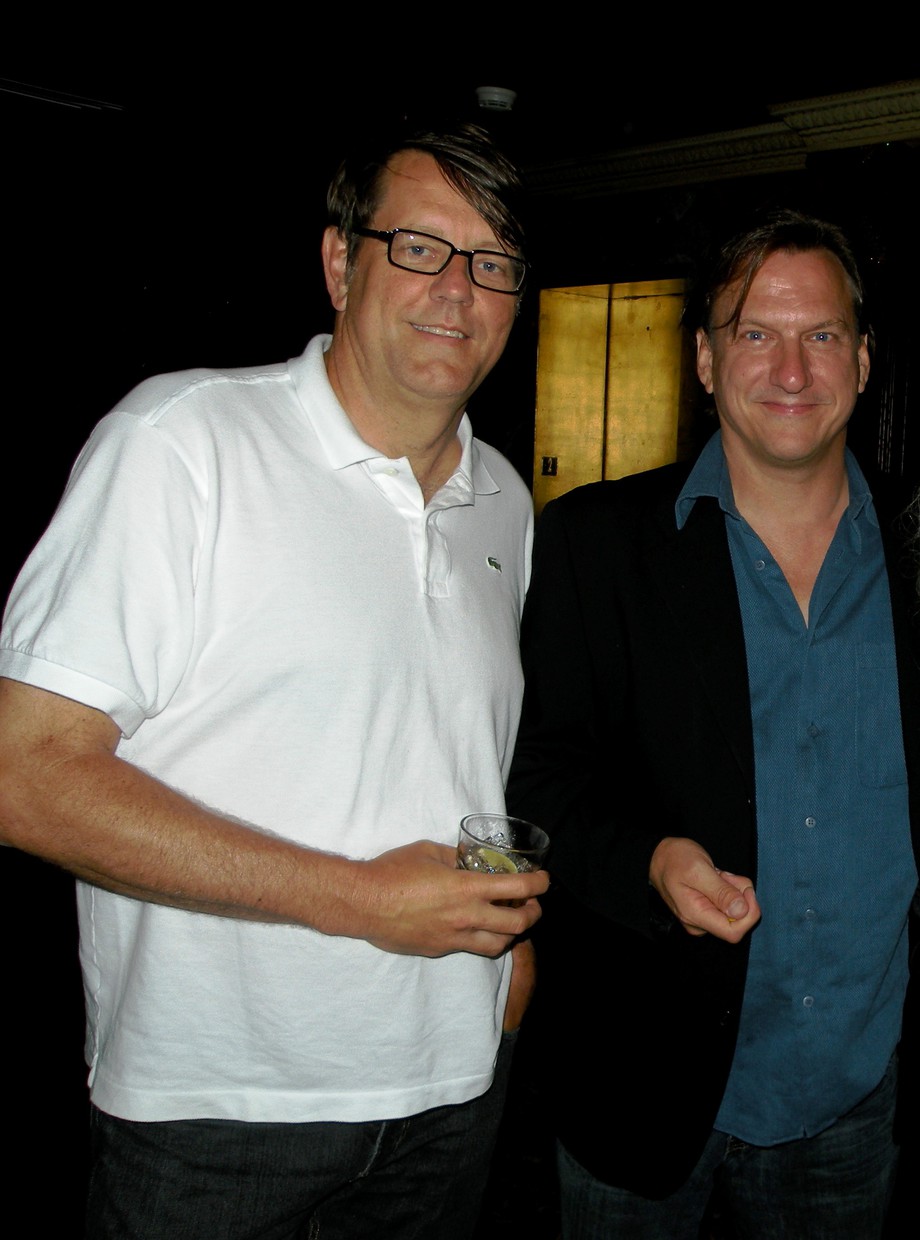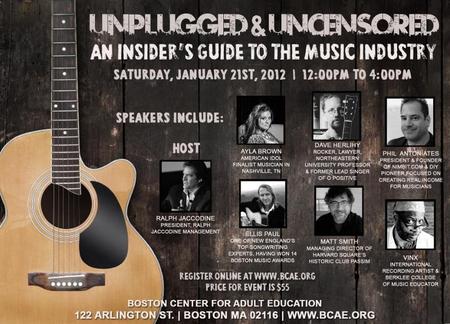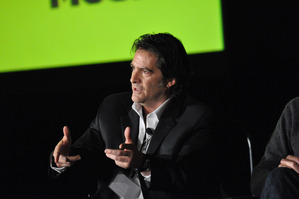5 - No... 6 Mistakes a New Act Should Avoid (by Bob Lefsetz and Ralph Jaccodine)
Thursday, February 9, 2012

Newbury Comics CEO Mike Dreese & Ellis Paul
Below are 5 mistakes a new act should avoid when starting out by Bob Lefsetz a (THE) music industry blogger.
It's spot on.
I would add one more point to Bob's list...
#6. 'NOBODY CARES'.
Mike Dreese, the co-founder of Newbury Comics record store chain up here in New England said these 2 words to me when we started Black Wolf Records in 1994.
I came to Mike ranting and raving about Ellis Paul, and how great this guy's music was. He quickly brought me down to earth saying those two words that have haunted me ever since... "Nobody Cares!".
But I do, and did... and 20 years later I have made a career out of spreading Ellis' music, and the music of other people I care about to music fans who don't care.
We have enough music in the world, we don't need any more songs, any more musicians... there are millions of songs and musicians that will never be heard because they can't find ears interested in taking them in.
So Mike's challenge to me back in '94 was 'How do I make people care about the music I care about?'.
I have worked at this question every day... for over 20 years as a manager.
Personal management has to be a holy crusade... or nothing at all. You have to have confidence that people will care.
Spreading my artist's music is how I feed my family, but just as important... it is how I feed my soul.
Now on to Bob Lefsetz:
Q. What are the five mistakes a new act should avoid when starting out?
It's spot on.
I would add one more point to Bob's list...
#6. 'NOBODY CARES'.
Mike Dreese, the co-founder of Newbury Comics record store chain up here in New England said these 2 words to me when we started Black Wolf Records in 1994.
I came to Mike ranting and raving about Ellis Paul, and how great this guy's music was. He quickly brought me down to earth saying those two words that have haunted me ever since... "Nobody Cares!".
But I do, and did... and 20 years later I have made a career out of spreading Ellis' music, and the music of other people I care about to music fans who don't care.
We have enough music in the world, we don't need any more songs, any more musicians... there are millions of songs and musicians that will never be heard because they can't find ears interested in taking them in.
So Mike's challenge to me back in '94 was 'How do I make people care about the music I care about?'.
I have worked at this question every day... for over 20 years as a manager.
Personal management has to be a holy crusade... or nothing at all. You have to have confidence that people will care.
Spreading my artist's music is how I feed my family, but just as important... it is how I feed my soul.
Now on to Bob Lefsetz:
Q. What are the five mistakes a new act should avoid when starting out?
- Believing that publicity/marketing is more important than music.
- Believing a record deal will solve all their problems and ensure success.
- Believing that because their parents and friends like them, everybody else will.
- Believing success usually happens overnight.
- Believing anything that happened in the past still applies. MTV no longer plays music, the younger demo doesn’t care much about radio, albums are a historical format with little relevance in today’s marketplace, everything’s up for grabs, and you can have it your way. If you’re good, people will find you. If you get success quick, it probably won’t last.
You can check out the full Lefsetz Letter here.



